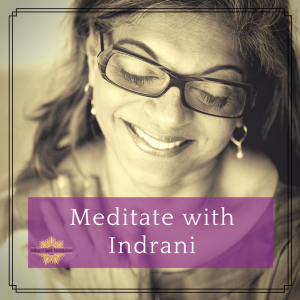
Does your to-do list seem twice as long as your days? Are you worn out trying to keep up with all life throws your way? Between work, family obligations, relationship care, and other activities, it can be difficult to squeeze in self-care. Even 10 minutes of meditation a day can help keep you balanced in astounding ways.
Studies have found that meditation can help you stay more balanced in many areas of life.
And if you’re working a high-stress job, juggling home life, and all your other obligations, meditation can help you stay balanced, healthy, and content.
The Science of Meditation
How does mediation work? Is it just the latest self-care fad? Johns Hopkins asked the same thing in 2013, and published their research findings in the Journal of the American Medical Association. Their conclusion was yes, studies definitely show some evidence that meditation improved things like anxiety and depression.
Meditation Improves Physical Health
Believe it or not, meditation can boost your physical health. In fact, one particular study showed that even folks with brand new meditation skills and only 8 weeks of practice developed more immunity against illness than those without. Additionally, the study showed that those who meditated were scientifically happier and healthier than those who did not. Who doesn’t need that promise at the end of a busy day?
Meditation also helps calm your mind, which allows you to handle stress differently. If you have chronic pain or inflammation, meditation can help decrease these symptoms as well, as much as 57%!
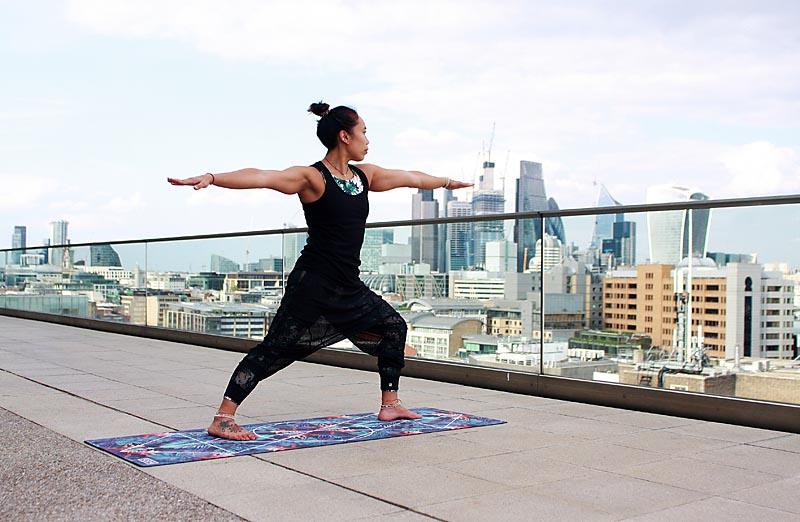
Meditation Improves Mental Health
Studies show that meditation actively disciplines the mind to focus. Even just a little bit of meditation can help in significant ways. Meditation can improve your working memory and help you organize, plan, and complete tasks more efficiently and effectively. Attention — that discipline of focusing on one thing despite the myriad of other things that continually bombard our minds — can be much improved by meditation as well. Try it for a week and your boss will most likely be thrilled with your improved job performance.
Meditation Improves Emotional Health
When you add meditation to your routine, you’ll begin to experience more joy, more satisfaction, more resilience, and more optimism. Meditation helps you connect to the present moment and appreciate what’s going on in the right-here, right-now. It trains your mind to observe rather than react. And because positive emotions compound over time, meditation helps expedite this process.
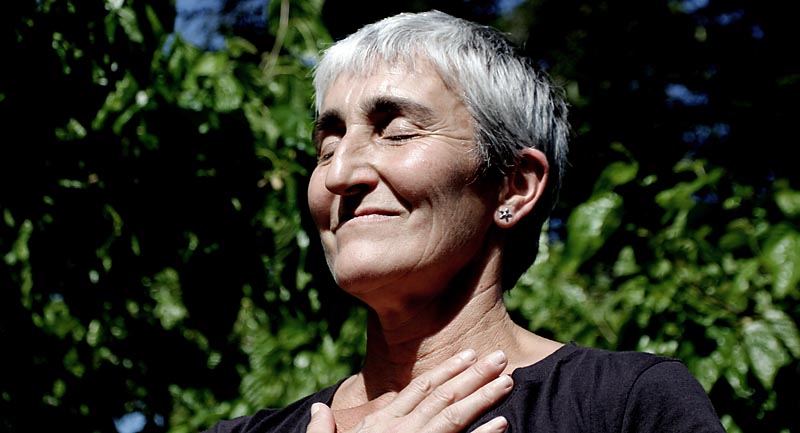
We all tend to relive moments from the past. This replaying, or ruminating, can often make us feel anxious or depressed. Meditation can help us learn to stop ruminating, thus leading to a happier, more contented outlook. Incredibly, even just 8 weeks of meditation has long term benefits— people continue to feel better years later, experiencing less panic and anxiety!
Meditation Improves Relationships
Meditation can build emotional intelligence, which is your ability to perceive, understand, and manage your emotions. It also helps you feel more connected to the people around you. In fact, even just a few minutes of loving-kindness meditation increase feelings of social connection and positivity. The result is an increased ability to see ourselves and others with more empathy and compassion. Can you imagine what would happen if your whole family or work team began meditating together? Our world would be such a positive place!
Many of us know we should give more attention to our self-care routine. Now that we know how meditation works in the body, perhaps we can use that as a springboard to start a meditation habit. Meditation doesn’t need take a lot of your time each day for you to begin experiencing some pretty radical benefits. Most studies confirm that even people who are new to meditation can experience profound benefits on physical, mental, emotional, and relational health.

If you’re new to meditation, consider a few of Indrani’s YouTube meditations:
- Self-Kindness
- When You are Feeling Overwhelmed
- Defining Change and What It Means to You
- Self-Empathy
- After a Tough Conversation
Whatever option you pursue, you, your loved one, and your coworkers will benefit from your increased ability (and desire!) to be present, solve problems, and empathize with whatever they’re going through on any given day. And you’ll appreciate the ability to crawl into bed each night a little less overwhelmed and a little more at peace.
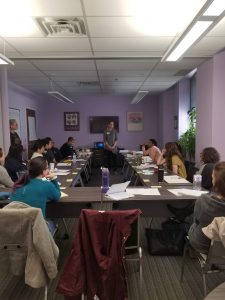
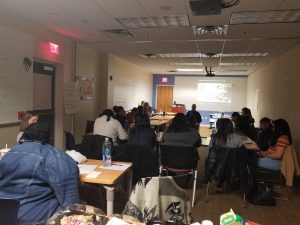 Our trainers actively listened and validated the Caregivers experience. We taught numerous tools designed to support staff with recognizing and setting boundaries, a fundamental practice of self-care. One staff person who has been in the field for two decades said of the boundary tools, “This has changed the way I look at everything.” We received consistent feedback that the visualization exercises were immensely helpful in preparing for having difficult conversations. An administrator commented “This exercise has helped me both personally and professionally.”
Our trainers actively listened and validated the Caregivers experience. We taught numerous tools designed to support staff with recognizing and setting boundaries, a fundamental practice of self-care. One staff person who has been in the field for two decades said of the boundary tools, “This has changed the way I look at everything.” We received consistent feedback that the visualization exercises were immensely helpful in preparing for having difficult conversations. An administrator commented “This exercise has helped me both personally and professionally.” 
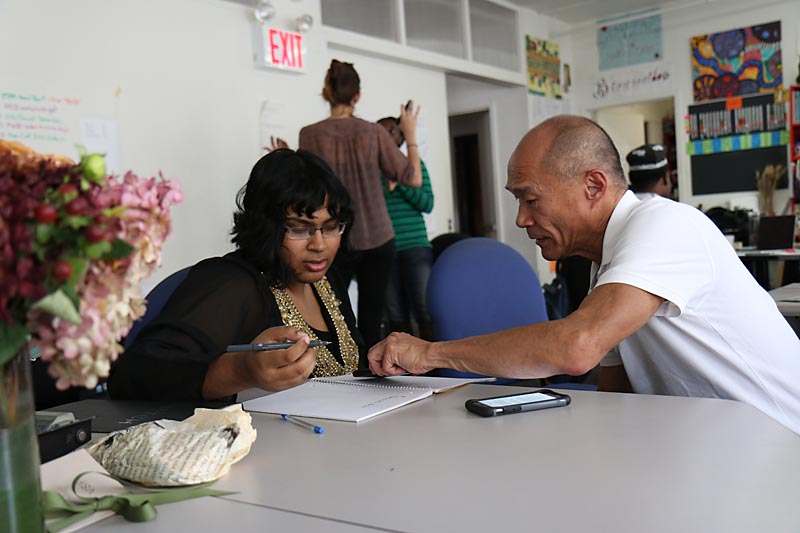


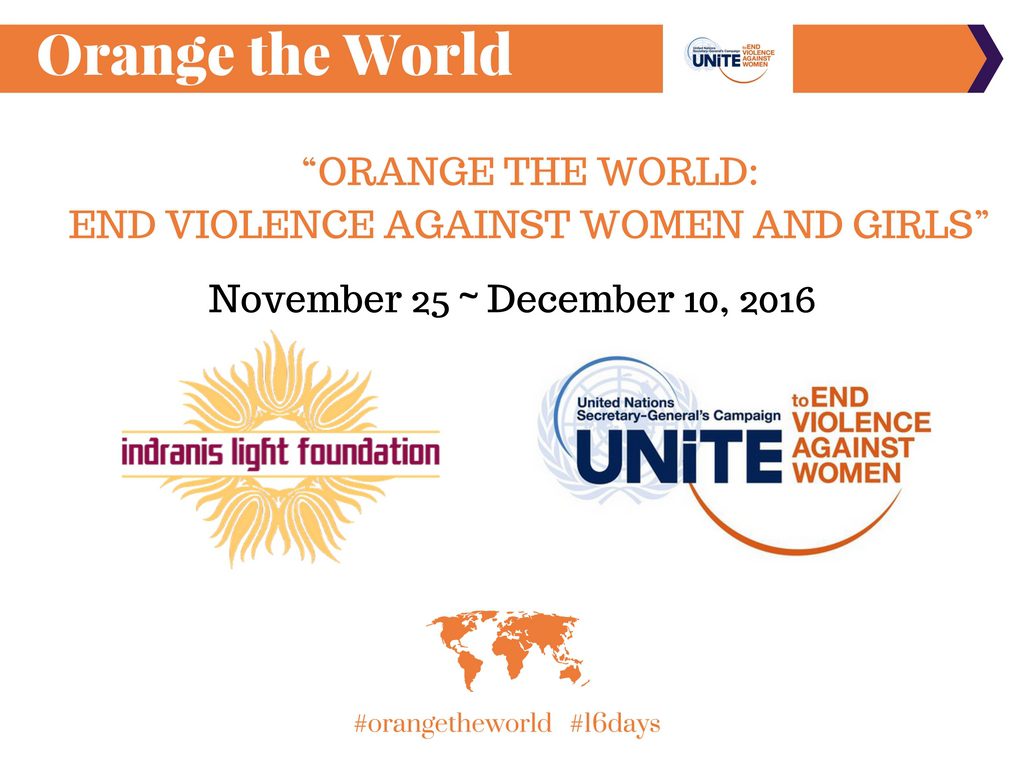 The unusual topic of conversation seems to follow me. At business meetings, dinner parties, and coffee dates, people keep talking to me about their childhood abuse. It makes sense: my story of abuse motivates my work, and I don’t stop talking about my mission to end violence in every home {
The unusual topic of conversation seems to follow me. At business meetings, dinner parties, and coffee dates, people keep talking to me about their childhood abuse. It makes sense: my story of abuse motivates my work, and I don’t stop talking about my mission to end violence in every home {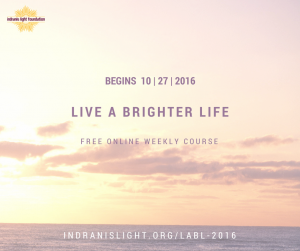 For the first time ever, we will be teaching the Live a Brighter Life curriculum in the evening so that more people can attend after work, cooking dinner, getting the kids ready for bed. Classes will be taught from 6pm – 7:30pm PT starting Thursday October 27th. These classes will be held every Thursday evening for the next six weeks (excluding Thanksgiving in the U.S.).
For the first time ever, we will be teaching the Live a Brighter Life curriculum in the evening so that more people can attend after work, cooking dinner, getting the kids ready for bed. Classes will be taught from 6pm – 7:30pm PT starting Thursday October 27th. These classes will be held every Thursday evening for the next six weeks (excluding Thanksgiving in the U.S.).